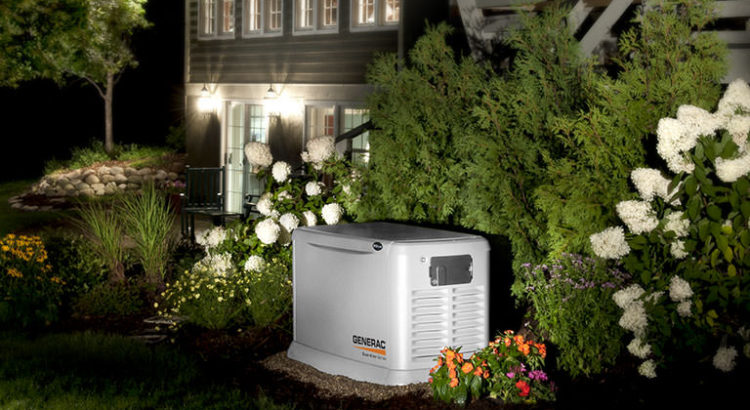Last updated on January 24th, 2019
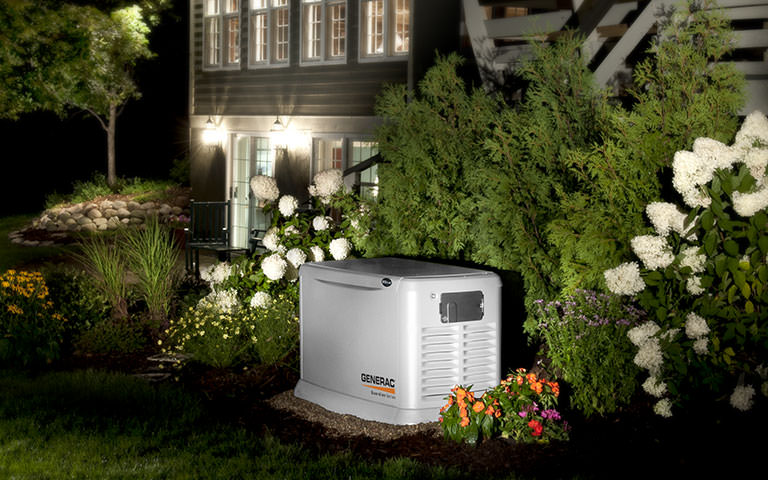
Power outages are on the rise across the U.S. and the number of outages doubles every five years, ever since 2000 (according to the study by Department of Energy and Inside Energy Database).
An aging infrastructure, combined with a growing population and more frequent extreme weather, are straining the electric grid.
So it’s good to be prepared and power generators can be a lifesaver when things get serious like when you’re hit by a storm and the power goes out. While living a day or two without a TV can even do you good, I doubt it’s the case for your food in the freezer and refrigerator. Also, it’s good to stay connected to the internet and keep your laptop and phones charged. Or perhaps you don’t want to be affected by the outage at all and keep on your normal life.
It’s all possible when you prepare ahead and take the time to pick the right power generator for your needs.
This is no easy task however, it can get quite overwhelming, so follow this guide and the quick checklist to make things easier for yourself.
4 things you want to consider when picking a power generator for your needs:
1) Wattage. Determine how much power you need to keep things running
An average size home requires around 5000 to 7000 Watts to power the essentials. In emergency situations you can get by with a lot less power consumption though (you can save 50% or more simply by switching off your electric water heater).
Here’s a list of common household items and their power consumption in watts:
Electric water heater – 3000W.
Space heater – 1800W.
Hot plate (single element) – 750W.
Microwave oven – 750W.
Washing machine – 750W.
Refrigerator – 350W.
Desktop computer – 300W.
Laptop computer – 75W.
Cell phone charger – 10W.
Add up the items you’ll want or need to use and you know how much power (watts) you need the generator to provide you with.
2) What will you be using the generator for
What you’ll be using the generator for should be one of the first things you consider really when buying a generator as that largely determines if you should go with a standby, portable or an inverter generator.
Home. Storm outages and other emergencies.
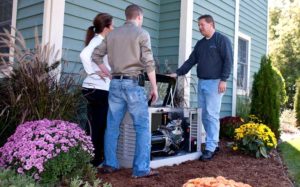 Decide what electronics and appliances you need powered. Do you want to power the entire house and keep everything running or can you get by with less, perhaps just the most important circuits or a few essential appliances? Common appliances that need power are sump pump, well pump, refrigerator, furnace, air conditioner.
Decide what electronics and appliances you need powered. Do you want to power the entire house and keep everything running or can you get by with less, perhaps just the most important circuits or a few essential appliances? Common appliances that need power are sump pump, well pump, refrigerator, furnace, air conditioner.
If you want to power the entire house or more than just a few electronics and appliances then a standby generator is your best bet. However, if all you need is to power some lights, electronics and a microwave then a portable generator will be enough for your needs.
Work. Construction work and such.
 Portable generators are your best and your only choice because of their great mobility and a wide range of power they offer and you need for working with the tools. With a good portable generator you’ll have no problems running your electric tools, saws, welding equipment etc as portable generator offers power up to 10,000 watts. Just make sure you pick a model that can handle your power needs. You’ll also want to make sure it’s relatively easy to move around and that the power outlets are covered from dust etc.
Portable generators are your best and your only choice because of their great mobility and a wide range of power they offer and you need for working with the tools. With a good portable generator you’ll have no problems running your electric tools, saws, welding equipment etc as portable generator offers power up to 10,000 watts. Just make sure you pick a model that can handle your power needs. You’ll also want to make sure it’s relatively easy to move around and that the power outlets are covered from dust etc.
Play. Camping and tailgating.
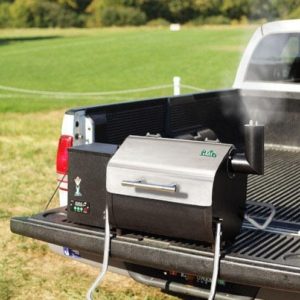 If you all you need is to power your RV, a few electronics, a smoker or a pellet grill then “Inverter Generator” might be exactly what you need. Inverter generators allow for up to 3000W of power. The good thing about inverter generators is that they offer very clean power. It’s quite a new technology, really. When compared to the regular portable generators, inverter generators are lighter weight and smaller in size, more fuel efficient and make less noise. If you need one for your RV, just make sure it comes with an RV outlet.
If you all you need is to power your RV, a few electronics, a smoker or a pellet grill then “Inverter Generator” might be exactly what you need. Inverter generators allow for up to 3000W of power. The good thing about inverter generators is that they offer very clean power. It’s quite a new technology, really. When compared to the regular portable generators, inverter generators are lighter weight and smaller in size, more fuel efficient and make less noise. If you need one for your RV, just make sure it comes with an RV outlet.
“An inverter generator has proved more than enough for my camping and RV needs and I take some serious trips in my RV. Last July we were out camping with a few friends and it was the first time I took the inverter generator instead of the portable one I also have and my friend Chad was so amazed with its quietness and the whole easy, no-hassle kind of element that comes with it. Chad later called me up and asked details and decided to get one for himself too.”
3) Decide the type of generator: standby or portable
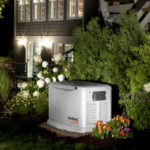 Standby generators turn on automatically when there’s an outage so you don’t need to be at home for it to work. They run on propane or natural gas and are typically connected to the existing gas lines so no refilling is needed. A standby generator is installed permanently outside of your house very much like an air conditioner so you can’t move it from place to place. Standby generators provide clean, consistent power and it’s great for also powering all sorts of complicated systems like heating, cooling and security systems without the need to plug each item in separately using an extension cord.
Standby generators turn on automatically when there’s an outage so you don’t need to be at home for it to work. They run on propane or natural gas and are typically connected to the existing gas lines so no refilling is needed. A standby generator is installed permanently outside of your house very much like an air conditioner so you can’t move it from place to place. Standby generators provide clean, consistent power and it’s great for also powering all sorts of complicated systems like heating, cooling and security systems without the need to plug each item in separately using an extension cord.
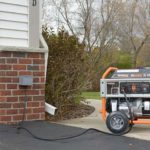 Portable generators need to be refilled with gasoline/diesel every few hours. Make sure you have enough fuel to feed your portable generator as the pumps at gas stations might not work when there’s an outage. You’ll also want to keep an eye on the oil level and fill it up every so often, especially if the generator is working non-stop. You’ll need to manually start the portable generator and plug in the items to the unit one by one using extension cords. Items that are hardwired to your home cannot be powered by a portable generator. The best feature of portable generators is, in fact, that they are “portable”.
Portable generators need to be refilled with gasoline/diesel every few hours. Make sure you have enough fuel to feed your portable generator as the pumps at gas stations might not work when there’s an outage. You’ll also want to keep an eye on the oil level and fill it up every so often, especially if the generator is working non-stop. You’ll need to manually start the portable generator and plug in the items to the unit one by one using extension cords. Items that are hardwired to your home cannot be powered by a portable generator. The best feature of portable generators is, in fact, that they are “portable”.
A Standby generator is, of course, a better choice for your home but you’ll need to get one installed in advance. A portable generator will help you survive the emergency but there’s more hassle operating it.
4) What is your budget
Inverter generators cost from $300 to $2,000.
Portable generator prices range a lot depending on the power and features, you can get one for as cheap as $150 or pay $5,000 and more.
For a home standby generator get ready to pay around $2,000 for a 7,500W unit and the prices go all the way up to $30,000 for the 150KW units. A 10,000W unit will cost you around $3,000 and 20,000W unit around $4,500 – $10,000 USD.
So to recap, 4 main things you’ll want to consider before getting a power generator:
1) The use. Home, emergencies, work or recreation?
2) Wattage. How much power do you need?
3) Portability. Do you need to be able to take it with you?
4) Budget. How much can you invest?
Other things to consider
The manufacturer – pick a trustworthy brand that has a proven track record and is known for good quality products and reliable customer service. Just don’t pick a “no-name” shady brand.
Warranty – what do you do when the unexpected happens? The length of the warranty is important.
Features – different units come with different features. If you want to be able to monitor your generator from a remote location via your smartphone then make sure the unit comes with that capability.
Installation – standby units usually require a professional installation.
Fuel type – gasoline, propane, natural gas?
And that’s about it. With that information you’ll be have a pretty good idea of what type of a generator you need and how much power it needs to be able to provide you with.
